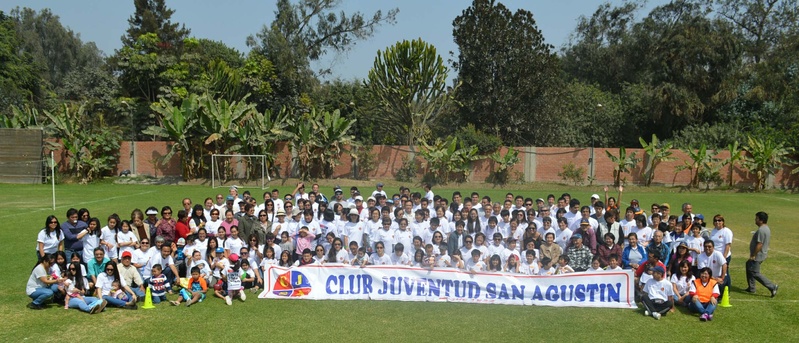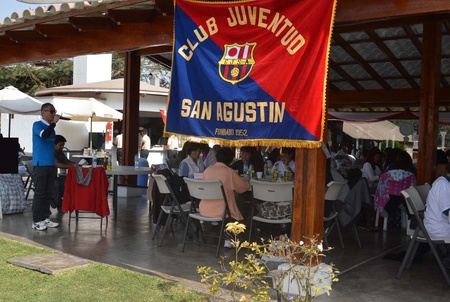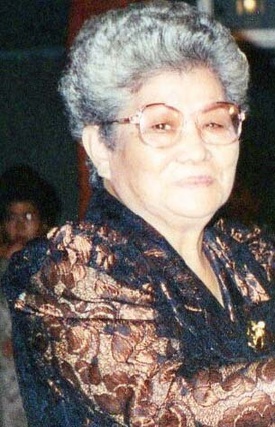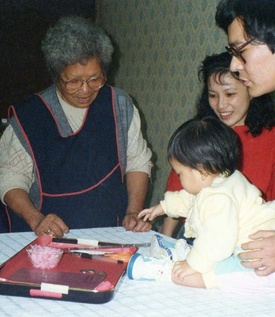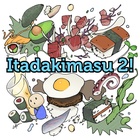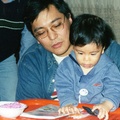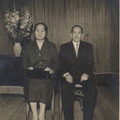This story began when my wife and I got married, they were difficult times in Peru, most of us still went to work in Japan. It seemed that we were going to be left without Nikkei in the country . I had a clothing business in the city center. My wife's mother offered us her house until we could establish ourselves well, in the end we stayed for many more years. My wife was the last of ten children, the only woman. It seems that my in-laws were waiting for her to arrive, who stayed in that house to take care of her parents.
My wife's older brothers, given their ages, could be her parents. It was a bit difficult to live in that house, I had many brothers-in-law, although some in Japan, as well as nephews. Imagine how brave I had to be to enter that house. To this day, one of my brothers-in-law and a nephew jokingly tell me that I didn't get their approval. That didn't worry me because I had earned the sympathy of my wife's sisters-in-law; In addition to that, the house was located on crop land, belonging to the San Agustín del Callao hacienda.
The San Agustín del Callao hacienda was well known because it was inhabited by Nikkei. It was, until recently, an important site because its crops supplied the city of Lima. The group of people was very united, an example in everything. I am proud to belong to that group since I married a person from the hacienda. Everyone there was like a single family, they got together for many activities, such as cultural activities for “family day”, cockfights, and a game of gateball (to this day there is a very competitive team). Also for soccer in the La Unión Stadium Association of the Pueblo Libre district in Lima.
Because we were all like one family, it seemed like I had to have everyone's approval, especially since I came from the city. I was helped by the fact that my father also met my mother-in-law on a farm, but from another place, many years ago.
This story revolves around my mother-in-law. Her name was Haruko, everyone called her “oba” (grandmother), and I finally ended up calling her that too. The house was a place where many people came. She welcomed everyone with open arms. Always in the kitchen, I improvised preparing “ tempura ” of everything, banana, chinese onion, goya , eggplant, vegetables in general.
In that house you could eat countless things, my mother-in-law prepared many meals, some only for special occasions, like a sweet called “popo”, which is a kind of pancake with chancaca (brown sugar dough). Another sweet that he prepared were some sticks prepared with flour and egg and fried in oil.
The “nantu” was made with glutinous rice flour and placed inside leaves and steamed. When she prepared them, she (the grandmother) was very tired, because she had to knead a lot. For the “ oshogatsu ” or new year and for the masses of our dead, the “ chawaki ” was prepared with seven different things and seven of each of them. The savory snacks were filled with skin-on pork, seasoned with shoyu (soy sauce) and sugar. There was also “fried tofu ,” “ tempura ” of sweet potato, “ gobo ” (a root), green beans, and carrots. Also “ kamaboko ” (steamed fish cake), “chinuku” (a variety of potato), “ kombu ” (a type of seaweed), they also prepared sushi. Among the sweet snacks, there were fried sticks, “ castera ” (steam-cooked sponge cake) and they were completed with some “okashi” bought in the city center. The daughters-in-law came to help with these preparations and sometimes they brought the dishes already prepared at home.
My mother-in-law had the gift of indulging each person with her food, she knew what they liked and she did her best to prepare it. If someone came to visit, I prepared it. She knew that I liked her “harusame ” and she prepared it for me every week, it was a way of showing me how much she loved me, or that's what I want to believe, because she was like that with everyone. He also prepared me a kind of tempura made of pumpkin with glutinous rice flour. I don't know if it was an Okinawan sweet or she had invented it, but now that my mother-in-law is gone, I think, as I do, that many will think: “oba haruko, (you are) the best.”
© 2017 Roberto Oshiro Teruya
Nima-kai Favorites
Each article submitted to this Nikkei Chronicles special series was eligible for selection as the community favorite. Thank you to everyone who voted!


